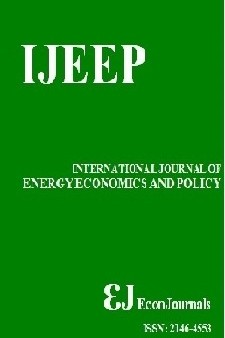Effects of Targeting Energy Subsidies on Domestic Electricity Demand in Iran
Effects of Targeting Energy Subsidies on Domestic Electricity Demand in Iran
The ever-increasing electricity consumption in Iran, mainly due to its low and, in fact, unrealistic price, has caused the nationwide power supply network to fail meeting the demand; therefore, optimizing its price is an important issue in the management of the electricity supply and demand. Domestic energy consumption is very high in the country making it a necessity to optimize it and study the consumer's behavioral reaction towards the variations of the electricity price. Effort has been made in this paper to study the impact of the targeting of energy subsidies on domestic demand during 1991-2012 using the Almost Ideal Demand System (AIDS) and Seemingly Unrelated Regression (SUR) estimation methods. Results have shown that electricity is an essential commodity for both urban and rural families; the absolute value of the price elasticity has been found to be less than unity for both. Results have also indicated that the consumption reaction against the price increase is not much. It is concluded, therefore, that mere energy pricing policies do not possibly suffice to reduce consumption; taking advantage of other supplementary policies, such as encouraging people to use low-consumption efficient electric appliances, enhancing the public level of awareness and culture of correct consumption, and so on, is also necessary. This paper has been so organized as to introduce the subject in section one, review the related previous studies in section two, present the quantitative model used for the study in section three, present the data and methodology in section four, discuss the results in section five, and provide conclusions and policy implications in section
Keywords:
Almost Ideal Demand System (AIDS), Seemingly Unrelated Regression (SUR), Targeting energy subsidies Domestic, Electricity, Demand,
- Başlangıç: 2011
- Yayıncı: İlhan ÖZTÜRK
Sayıdaki Diğer Makaleler
Asma GAMOORİ, Alireza JORJORZADEH, Fatemeh MEHRABANİ
The Role of Fuel and Energy Sector in the Eurasian Economic Community Integration Process
İgbal A. GULİYEV, Elnur T. MEKHDİEV
France KRİZANİC, Zan Jan OPLOTNİK
Improvement of the Methodology for the Justification of Retail Prices for Oil Products
Asian and Global Financial Crises’ Effect on Malaysia Co2 Emission
Effects of Targeting Energy Subsidies on Domestic Electricity Demand in Iran
Fatemeh BAZZAZAN, Farnaz GHASHAMİ, Mir Hosein MOUSAVİ
Ardak Dikhanbayevna Omarbekova, Toleubek Pentayevich Pentayev, Ainur Kanatovna Igembayeva, Kurmangul Toletaevna Abayeva
